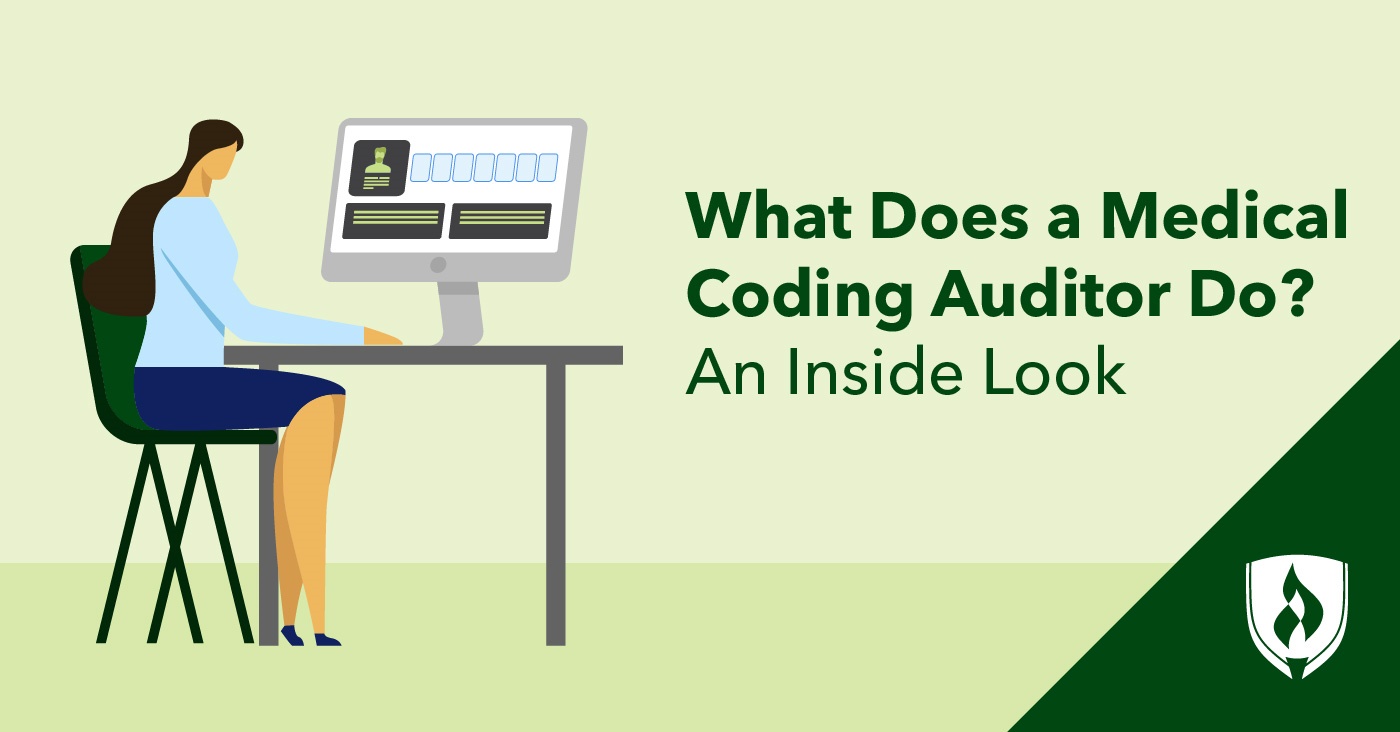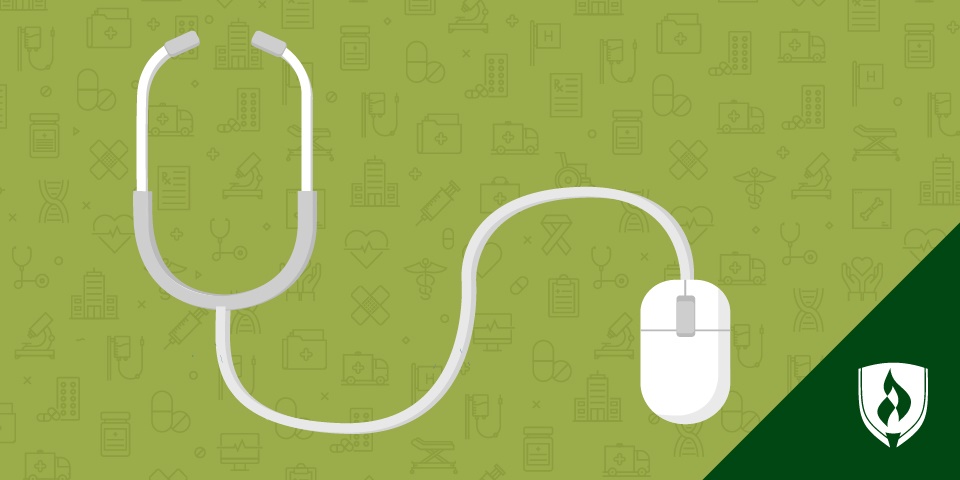
Every day, there’s an almost mind-boggling number of medical procedures and treatments taking place across the country all requiring accurate documentation and payment. That’s a big part of why medical coding and health information management are crucial in our modern healthcare system. Insurance companies, healthcare organizations and many other institutions rely on accurate reimbursement as well as specific information about diagnostic trends to operate.
This makes the study of health information management an appealing option for anyone looking to get established on the administrative side of healthcare. In fact, a relatively short Medical Billing and Coding Certificate program can put graduates in a position to work in a medical coding role.
But what might come next for medical coders as they progress in their careers? One potential next step is to become a medical coding auditor. To learn more about this career, we spoke with Judy Johnson, experienced health information professional and assistant professor of Health Information Management at Rasmussen University. Read on for a look at this fascinating administrative healthcare “detective” role.
What does a medical coding auditor do?
A medical coding auditor provides quality assurance and accuracy reviews of the work of other medical coding professionals. They often serve as both a safety net for reducing coding and an escalation point for complex documentation and coding issues.
“The medical coding auditor is responsible for reviewing the medical codes that were assigned by other medical coders, and supporting documentation,” says Johnson. “Since medical coding is extremely important for correct reimbursement of medical providers and practitioners, the coding auditor serves as a ‘check and balance’ to re-confirm, or to question the validity of, diagnosis and procedure codes originally assigned or proposed for a particular claim.”
Why are medical coding auditors important?
Medical coding hinges on proper reimbursement to healthcare providers and organizations, so there is a big financial concern involved.
“It is very important for medical payment coding to be precise because inaccurate coding can lead to insufficient reimbursement to the provider,” Johnson says.
But correct reimbursement isn’t the only reason why medical coding auditors are important.
“Alternatively, auditors working for a payer can question the validity of a code that would lead to higher reimbursement than warranted,” Johnson says. “This can cause payment denials or questions, both of which are costly outcomes for the provider to pursue.”
Medical coding auditors, like medical coders, can work for a variety of institutions, but they are tasked to look out for the interest of their specific employer.
“The coding auditor may be an internal auditor working for a hospital or medical group practice,” Johnson says. “Other coding auditors work for insurers to double-check codes on claims and look for suspicious patterns of coding, such as ‘up-coding’ to a higher reimbursement level than is justifiable.”
Why are people drawn to medical coding audit work?
Johnson describes medical coding auditor work as a kind of “medical detective work.”
“Coders review sections or even the full medical record to determine if a documented procedure meets the criteria for the assigned procedure or diagnostic code,” Johnson says. “They become intimately familiar with medical conditions.”
If you’re the type of person that enjoys the challenge of an investigation and the satisfaction that comes from finally getting it all sorted out, this can be an appealing pathway for advancement in the health information field. The role is a mixture of science and finance, both crucial to keeping our healthcare systems running smoothly.
What is challenging about being a medical coding auditor?
The blend of financial concerns and health treatments makes the role of medical coding auditor one that can involve stress from many different people involved.
“Whenever payment is at stake, an auditor can experience pressure from their own organization or from the payer,” Johnson says. “Potential fines can be assessed on providers for coding erroneously, so the auditor has a responsibility to make sure that the medical procedure and diagnosis codes are being properly assigned and official guidelines are adhered to.”
Johnson also notes that certain diagnoses can be extremely complex to code. One example is a myocardial infarction—commonly known as a heart attack.
“Nuances of lab test results, parts of the heart affected, degrees of damage to the heart—all these are important for determining a correct code,” Johnson says. “Human bodies are subject to variation by nature and physiology, too. Also, the various ways in which physicians and other practitioners document the same procedure notes will differ, leading to varying interpretations.”
What skills, traits and qualifications are necessary for becoming a medical coding auditor?
Johnson says that medical coding auditors must have significant experience with medical coding before taking on this role.
“At a minimum, the coding auditor should possess a degree or certificate in medical coding or as a healthcare information technician, along with at least several years of coding experience,” Johnson says.
Johnson also recommends prospective medical coding auditors seek out professional certifications like the Certified Coding Associate (CCA)® or Certified Coding Specialist (CCS)® credentials from the American Health Information Management Association (AHIMA)® or the Certified Professional Coder (CPC)® credential from the American Academy of Professional Coders (AAPC)®. Each credential will have its own specific eligibility criteria, but all will require successful completion of a certification exam.
“The auditor position requires a very fine-tuned knowledge of medical terminology, broad knowledge of medical procedures and human anatomy,” Johnson says.
In terms of personal traits, Johnson believes that good medical coding auditors tend to be highly analytical with strong communication skills. The ability to teach and relay information is also a good skill for this role, as they will likely be involved in coaching other coders.
“Good planning skills are also required since the auditor may be involved with implementing new and changing policies and procedures,” Johnson says.
Preparing yourself for the next step
Ready to take the next step and get more details about what’s possible? Now that you’ve learned a bit more about the medical coding career path, it may be a good time to evaluate where your qualifications stand and determine if a credential from the Rasmussen University Health Information Management suite of programs could be the right next step.
Certified Coding Associate (CCA) is a registered trademark of American Health Information Management Association, Inc.
Certified Coding Specialist (CCS) is a registered trademark of American Health Information Management Association, Inc.
American Health Information Management Association is a registered trademark of American Health Information Management Association, Inc.
Certified Professional Coder (CPC) is a registered trademark of American Academy Holdings, LLC.
American Academy of Professional Coders is a registered trademark of American Academy Holdings, LLC.




